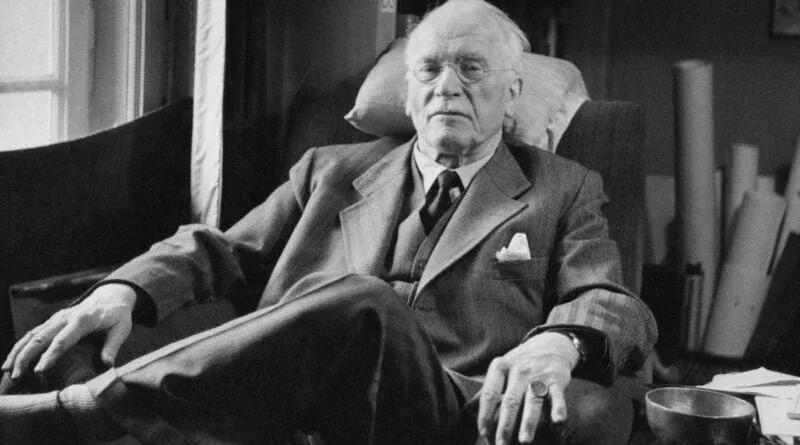Discover How Self Mastery Can Transform Your Destiny

Self-mastery is an important trait that many of us strive to attain. It is the ability to discover and control our impulses and emotions, creating a mindset of self-control and awareness. The path of self-mastery is not an easy one, but the benefits it brings to our lives are immeasurable. In this article, we will delve into what self-mastery is, how to develop it, and why it is so important. How you can transform your life by investing in mastering the process, psychology and skills involved in the journey.
What is Self Mastery?
Overview of Self Mastery
Self-mastery is the ability to control our thoughts, emotions, and behavior. It is the conscious development of self-discipline, willpower, and the ability to control our desires. It is a path of self-awareness, where we transcend negative thoughts and beliefs, and invest in our own personal growth. It's the mastery one attains over self guided by personal value and purpose.
Benefits of Self Mastery
Self-mastery brings many benefits to our lives, such as the ability to control our fears and develop resilience. It also helps us to break bad habits and create positive change in our lives. Self-mastery also leads to heightened self-confidence, providing us with the strength and courage to pursue our dreams.
Quotes on Self-Mastery
"The only true limitation is that which you set for yourself in your own mind." - Napoleon Hill. This quote sums up the essence of self-mastery, that we have the power to transform our lives if we only have the intention to do so.
How to Develop Self-Mastery?
Steps to Develop Self-Mastery
Developing self-mastery is a journey that requires time, effort, and dedication. The first step is to increase our self-awareness, becoming mindful of how our thoughts and emotions influence our behavior. We should also focus on developing our willpower and self-discipline, training ourselves to act in accordance with our goals and values.
Overcoming Impulses and Emotions
The ability to control our impulses and emotions is essential in developing self-mastery. We should practice techniques such as meditation and mindfulness, which help us to stay present and rational in moments of stress or temptation.
Increasing Self-Awareness
Self-awareness is the foundation of self-mastery. It involves being fully present in the moment, and becoming aware of our thoughts, emotions, and behavior. Self-awareness helps us to identify patterns in our behavior, and to consciously choose to change them if they are negative or detrimental to our well-being.
Why is Self-Mastery Important?
How Self-Mastery Can Lead to Happiness
Self-mastery is a key factor in achieving happiness. By mastering our thoughts, emotions, and behavior, we can create the life we desire and reach our full potential. We are able to break free from negative patterns and beliefs that hold us back, opening up new opportunities for growth and fulfillment.
Controlling Doubts and Developing Resilience Through Self-Mastery
Self-mastery helps us to control our fears and develop resilience. By becoming conscious of our beliefs and attitudes, we can identify what is holding us back and move forward with courage and strength. This allows us to overcome obstacles and challenges that may have once seemed insurmountable.
How Self-Mastery Can Help Break Bad Habits
Self-mastery is essential in breaking bad habits. By developing our willpower and self-discipline, we can overcome negative habits and transform our behavior. This allows us to create positive change in our lives, improving our mental health and well-being.
Developing Self-Mastery with Carl Jung

How Carl Jung Influenced the Concept of Self-Mastery
Carl Jung was a renowned psychologist who greatly influenced the concept of self-mastery. He believed that self-awareness and introspection were key in developing personal growth and transformation. He believed that by exploring our own unconscious mind, we could gain a better understanding of ourselves and the world around us.
Implementing Jungian Ideas in Developing Self-Mastery
We can implement Jungian ideas in developing self-mastery by exploring our unconscious mind and discovering our true potential. This involves recognizing our ego and its influence on our behavior, and transcending negative beliefs and doubts.
Carl Jung believed that self-mastery involved several steps. The first step was to become aware of our own unconscious mind and the patterns of behavior that we exhibit. The second step was to learn how to control our own thoughts and emotions. The third step was to develop a sense of purpose and meaning in life. Finally, the fourth step was to develop a sense of connection with others and the world around us.
Connecting with Your Destiny through Self-Mastery
Self-mastery allows us to connect with our destiny by uncovering our true talents and desires. By developing our self-awareness and aligning our behavior with our intentions, we create a life that is fulfilling and purposeful.
In conclusion, developing self-mastery is essential in achieving happiness and fulfillment in life. It requires dedication, effort, and the willingness to create positive change in our behavior and thoughts. By taking control of our impulses, emotions, and beliefs, we create the opportunity to transform our lives and reach our full potential.
Frequently Asked Questions
Q: What is self-mastery?
A: Self-mastery is the ability to take control of one's self and navigate towards their goals with discipline and awareness. It implies becoming more self-aware and knowing your purpose in life. It means taking the steps needed to live your life with greater wisdom and inner strength, steadily progressing forward toward wholeness and self-explanatory.
Q: What's self-mastery definition
Self-mastery is defined as the ability to control one's emotions, impulses and actions in all situations, and move forward consciously and steadily towards one's goals.
Q: Why should I develop self-mastery?
A: Developing self-mastery can benefit you in many ways. It will help you become more disciplined and able to take control of your life. It will also help you discover your purpose and direction in life, navigate through setbacks with greater resilience, and be able to pursue your goals with greater focus and determination.
Q: What are some characteristics of self-mastery?
A: Some characteristics of self-mastery include the ability to stay alert, make judgment calls based on awareness, stay alert in the face of discomfort or even pain, and have the courage to move forward towards your goals despite any obstacles that may arise.
Q: Is self-mastery a natural ability or can it be developed?
A: Self-mastery is a skill that can be developed. It requires discipline and self-discipline to do the things necessary to become a self-mastery skilled individual.
Q: What is the first step in developing self-mastery?
A: The first step in developing self-mastery is to become self-aware. You need to know your strengths and weaknesses, and understand what drives you forward. You can do this by taking time for self-reflection, self-evaluation, and even seeking feedback from trusted advisors.
Q: Can everyone develop self-mastery?
A: Yes, everyone has the ability to develop self-mastery. However, it takes work and discipline to get there. It is important to remember that it is an ongoing journey towards wholeness and self-explanatory that requires continuous effort and dedication.
Q: How can developing self-mastery make me happier?
A: Developing self-mastery can make you happier by helping you become more aware of your emotions and how to regulate them effectively. It can also help you develop greater gratitude and a focus on the present moment, which can lead to a happier, more fulfilling life.
Q: What is the role of discipline in self-mastery?
A: Discipline is a key aspect of self-mastery. It involves developing the ability to do the things you know you should, even when you may not want to. It requires the ability to be automatic and consistent in our actions, overcoming the tendency towards procrastination and distraction.
Q: Can self-mastery be applied to other areas of life, such as martial arts?
A: Yes, self-mastery can be applied to other areas of life such as martial arts. In fact, the concept of self-mastery is often associated with martial arts because it involves the pursuit of excellence through the development of discipline, focus, and inner strength.
Q: What is the role of self awareness in self-mastery?
A: Awareness is a key component of self-mastery because it involves being conscious and attentive to your thoughts, emotions, and actions. It involves staying alert, even in the face of discomfort, and making judgment calls based on the realization of your own strengths, weaknesses, and limitations.
or. It is the conscious development of self-discipline, willpower, and the ability to control our desires. It is a path to be more self aware, where we transcend negative thoughts and beliefs, and invest in our own personal growth. It's the mastery one attains over self guided by personal value and purpose. It's the trigger of courageous actions that helps you to create a healthier life.


